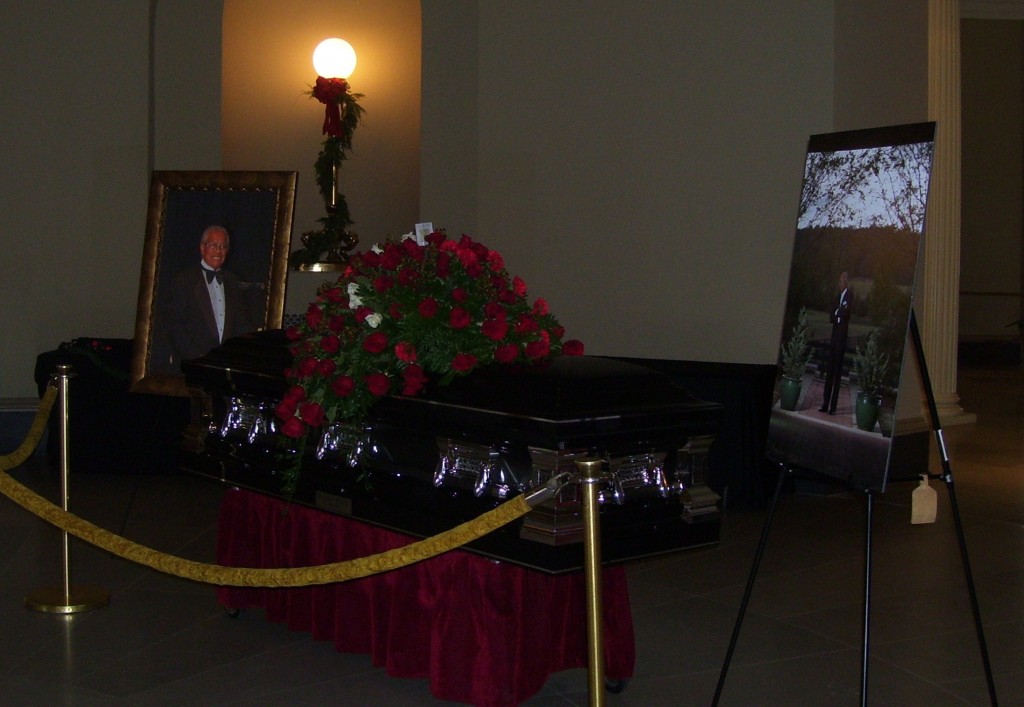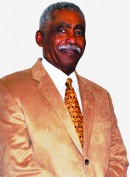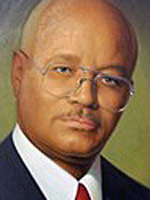
By Stephanie R. Jones
Dr. Aaron Shirley will make a final visit to the Jackson Medical Mall, the landmark facility he founded to provide healthcare to underserved populations.
Funeral services for the healthcare pioneer, civil rights veteran and McArthur “Genius Grant” winner will be at 11 a.m. Saturday at Stanton Hall Auditorium in the UMMC Conference Center the Jackson Medical Mall. Peoples Funeral Homes has charge.
Dr. Shirley died of natural causes Wednesday, Nov. 26, at UMMC. He was 81. He lay in repose at the Old Capitol Museum, 100 S. State St., on Friday, Dec. 5.
 Dr. Shirley, a pediatrician who hailed from Gluckstadt, became the first African American resident at UMMC School of Medicine in 1965, after operating a private practice in Vicksburg.
Dr. Shirley, a pediatrician who hailed from Gluckstadt, became the first African American resident at UMMC School of Medicine in 1965, after operating a private practice in Vicksburg.
His legacy includes helping to establish the Jackson Medical Mall, a health-care facility devoted to the underserved, and the Jackson Hinds Comprehensive Health Center, which today is the largest community health center in the state. Shirley also formerly served as the center’s director.
In 1993, Dr. Shirley received the prestigious MacArthur Fellowship, also known as the Genius Grant, for his creativity in bringing health care to the state’s rural and urban populations, and used it to further is mission. He received the Governor’s Initiative for Volunteer Excellence, or GIVE Award, in 2009.
Dr. Shirley was longtime chairman of the board of the nonprofit Jackson Medical Mall Foundation, an organization that allowed him to shepherd not only health care for the disadvantaged, but also champion economic and community development in the mall neighborhood. He gave new life to the Jackson Medical Mall, helping to attract tenants including UMMC and its Cancer Institute, several city of Jackson departments, retail operations, and Jackson State University’s School of Public Health.
“Aaron was a very wise and caring man who could have gone anywhere and done anything with his talents,” said Dr. James Keeton, UMMC vice chancellor for health affairs, who was a resident at UMMC at the same time as Dr. Shirley. “But he chose to stay in Mississippi and work to improve the health of its people, and his life of service was a testament to that,” said Keeton, who is also dean of the School of Medicine. “His impact on the medical community was immense.”
That includes Dr. Shirley’s 40 years as a pediatrician. For many years, he was the state’s only black pediatrician. He also served as a clinical instructor in UMMC’s Department of Pediatrics for four decades.
Dr. Shirley became a civil rights icon and activist during his decades of breaking down racial barriers and promoting social justice.
Dr. Shirley was a graduate of Tougaloo College and of Meharry Medical College. Through the Jackson Hinds Comprehensive Health Center, he established a comprehensive school-based clinic in Jackson to provide health and counseling services, lowering rates of teen pregnancy, drug abuse, teen violence, sexually transmitted diseases, and mental health issues.
Retired Judge Ruben Anderson said Dr. Shirley was a visionary who was committed to the overall improvement of his community. “He chose pediatrics to take care of children but his commitment was to the whole child and to a community which would allow a child to thrive, not just to medicine,” said Anderson, who with Drs. Shirley, Wallace Conerly and Ted Woodrell of UMMC, worked together to secure financing for the Medical Mall project.
 “Whether it was a Head Start program like Mississippi Action for Progress, a private medical practice, a community health program like Jackson Hinds Comprehensive Health Center or the multi-faceted Jackson Medical Mall facility, an in-school program like those he initiated at Lanier High School, and beyond, Aaron Shirley was ‘all in’ for the education, health and prosperity of the community,” Anderson said.
“Whether it was a Head Start program like Mississippi Action for Progress, a private medical practice, a community health program like Jackson Hinds Comprehensive Health Center or the multi-faceted Jackson Medical Mall facility, an in-school program like those he initiated at Lanier High School, and beyond, Aaron Shirley was ‘all in’ for the education, health and prosperity of the community,” Anderson said.
Dr. Shirley fought exclusion of black physicians from hospitals in Vicksburg, where he practice family medicine, said Dr. Jack Geiger, found of Physicians for Human Rights and a veteran of the Civil Right Movement and Freedom Summer.
“Drs. Robert Smith and Shirley were twin pillars of the struggles for social justice and equity in medical care in Mississippi from the 1960s to this day.”
When the Delta Health Center began clinical services in 1967, understaffed and overwhelmed with patients, Dr. Shirley left his practice in Jackson and drove the 140 miles to Mound Bayou (and then back again) two days a week to help out. Geiger said. Bob Smith learned to fly, borrowed a plane, and flew to the Delta and back, doing the same, he said.
Dr. Smith said he and Dr. Shirley were students at Tougaloo in the 50s where Dr. Shirley was a mentor. “We came back to Mississippi when the black patient and physician were strictly segregated and patient care was third world,” Dr. Smith said. “Although we’re still 49th in this state in most health indices, he helped us move from third world.
“We are all better off for his life and career in many public-health, civic and social ventures. I am proud to have worked with him for a lifetime and call him a professional and personal friend,” he said.
Several years ago, Shirley envisioned the creation of a public charter school to be run by the Jackson Medical Mall Foundation that would give teens the tools and coursework to pursue careers in health care.
“He was such a visionary man. He saw things that other people couldn’t see, and tried things that many people would not have thought possible,” said Dr. Beverly Wade Hogan, Tougaloo College president and a member of the Jackson Medical Mall Foundation’s Board of Trustees.
Hogan shared a friendship of more than 30 years with Shirley and his wife, Ollye, and is thankful for Shirley’s service as a former member of Tougaloo’s Board of Trustees. At the time of his death, the Distinguished Tougaloo Alumnus was a trustee emeritus.
“Dr. Shirley and his wife, Ollye, have been my dear friends for more than thirty years. They are like family to me. His passing leaves a tremendous void in our community,” Hogan said. Beyond being a renowned physician and medical pioneer, she said, he was a champion of justice, and an advocate for the poor and underserved. “He was innovative and courageous, using the tenacity of his indomitable spirit to help advance our state and nation”.
In recent years, in cooperation with a medical university in Iran, and with support from the U.S. State Department and colleagues at the UMMC’s home campus in Oxford, he fought to establish an integrated model of free-standing, community-based “health homes,” staffed by specially trained community health workers and integrated with community health center and hospitals.
At an event in November honoring Dr. Shirley his eldest son, Kevin Shirley, summed up what has driven his father through the years.
“What I’ve learned from my father is that service to others is not something you do for momentary recognition; service, commitment to others, is a lifestyle,” Kevin Shirley said. He said his father told him “you have to learn to have fun serving others.”
Dr. Shirley is survived by his wife, Dr. Ollye Shirley; sons Kevin Shirley and Terrence Shirley; daughters, Christal Shirley Porter and Erin Shirley Orey; grandchildren, Girard Shirley, Marlon Shirley, Arlington Shirley, Chandler Shirley and Lauren Porter; sister, Ruth Shirley; two great-grandchildren and a host of nieces and nephews.
In lieu of flowers, the Shirley Family request donations be made to the Dr. Aaron Shirley Foundation mailed to: Jackson Medical Mall, 350 West Woodrow Wilson Drive, Ste. 101, Jackson, MS 39213.
Stephanie R. Jones can be reached at srjones13@gmail.com or (601) 260-4232.



